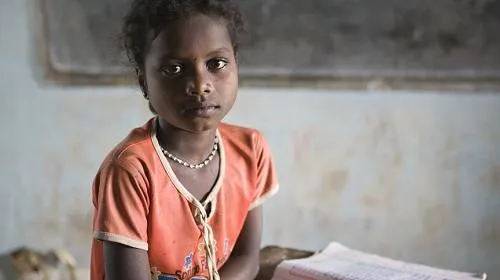“When it comes to marriage, girls shouldn’t be the ones taking vows,” said Helene Gayle, president and CEO of CARE.“You and I should. On the first-ever International Day of the Girl, let’s vow to end child marriage together.”
By 2030, there will be an estimated 15.1 million child brides marrying each year, up from 14.2 million in 2010, according to a report from the United Nations Population Fund (UNFPA) released today. In many of the world’s poorest countries, girls are more likely to marry before the age of 18 than finish secondary school.
The ripple effects of child marriage are devastating for the girls and their communities. Child brides are twice as likely to be beaten by their husbands and contract diseases such as HIV from often much-older men. These girls also have a significantly higher risk of dying during pregnancy and childbirth than women in their 20s. Child marriage drastically reduces the number of girls receiving education in developing countries — ultimately preventing girls and women from lifting themselves and their communities out of poverty.
Around the world, CARE has programs that work with families, communities and local organizations to reduce the prevalence of child marriage, and mitigate its harmful effects. In addition, CARE works with communities to help eradicate the practice, by helping change local laws and building the capacity of communities to change social norms.
Clinton’s announcement highlighted changes to the State Department’s annual Country Reports on Human Rights Practice. Beginning this year, these reports — submitted every year to Congress — will track every country’s legal minimum age of marriage and the rate of marriage for girls and boys under age 18.
The United States Agency for International Development (USAID) will also embark on a pilot program in Bangladesh to test approaches to address the issue of child marriage based on issues such as health care, education, and legal rights. The program will also gather together religious authorities, media, local governments and NGOs to promote community sensitization to the issue.
“…We have refocused it [child marriage and girls education] and elevated it to be one of the primary commitments within our overall decision that girls and women have to be at the heart of our foreign policy,” Clinton said.
At the event, the Ford Foundation also announced they will launch a five year, $25 million commitment to work with NGOs, governments, local communities and other funders to build the political will necessary to end child marriage and to support new research to determine successful interventions. The foundation will aim to expand girls’ access to resources and rights, including the right not to marry early. The foundation will focus on child marriage in Southern and West Africa, Central America, India and Egypt.
While the event marked progress in efforts to raise awareness about child marriage, these steps are just the beginning of the fight to end the widespread practice.
Media Contacts: Washington, D.C.: Stephanie Chen, CARE, schen@care.org, 1.202.5959.2824, 1.404.735.0871
Atlanta: Nicole Harris, CARE, nharris@care.org, 1.404.979.9503, 1.404.735.0871

